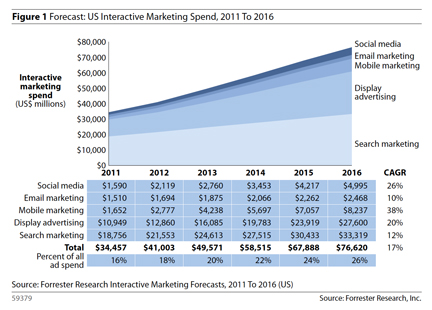
Readers may recognize “Going Mobile” as the title of a song by the rock band The Who (from their 1971 album Who’s Next). Guitarist and vocalist Pete Townsend was writing about the joys of traveling the open road in his RV:
Out in the woods
Or in the city
It’s all the same to me
When I’m driving free, the world’s my home
When I’m mobile
At the time, Townsend could not have known that forty years later the song would take on a completely new meaning. Today, the world is indeed going mobile.
According to recent data from Canalys—a leading provider of computing technology analysis—the year 2011 was the year of the smartphone. For the first time ever, worldwide smartphone sales (488 million units) surpassed PC sales (415 million units).
“Smartphone shipments overtaking those of client PCs should be seen as a significant milestone,” a Canalys analyst said. “In the space of a few years, smartphones have grown from being a niche product segment at the high-end of the mobile phone market to becoming a truly mass-market proposition.”
Some have referred to this transition as the beginning of the “post-PC” era of computing. Indeed, the expansion of smartphones beyond desktop and notebook computers signals a major shift. With their increased processing power, advanced touch user interface, availability of wireless broadband service—not to mention high resolution cameras, HD video and GPS navigation capabilities— smartphones are dramatically changing the way people interact with computer technology, access the online world and communicate with each other.
This sudden change has important implications for consumer marketing and advertising planning and media buying. And this is not only impacting traditional media such as TV, radio and print. The mobile revolution is affecting social media and online advertising models developed more recently.
A recent article in The New York Times, “Facebook’s Mobility Challenge,” revealed how the social media giant is struggling to come up with an effective solution to advertising to its expanding number of mobile-only users. “We do not currently directly generate any meaningful revenue from the use of Facebook mobile products, and our ability to do so successfully is unproven,” the company said in its review of the threats it faces.
This is particularly problematic for companies like Facebook where much of their user growth (worldwide Facebook users are now at 845 million) is taking place in countries like Chile, Turkey, Venezuela and Brazil where many people have never had a broadband connection to the Internet other than through their smartphones.
The transition to a mobile dominated world is being taken note of by major advertisers. They are looking for opportunities to deliver messages in unique new ways and also drive mobile commerce. A recent report by Forrester Research forecasts that interactive advertising in the US will reach $76.6 billion by 2016 and be equal to TV ad spending. As significant as that projection is, the truly interesting part of this report is found in the details.
Forrester breaks down interactive marketing into five subcategories:
• social media
• email marketing
• mobile marketing
• display advertising
• search marketing.
Of these, mobile marketing is projected to quintuple in size to $8.2 billion between now and 2016! This is a compound annual growth rate of 38% and far faster than any of the four other categories. The report also shows that mobile marketing overtook both email marketing and social media marketing in 2011.
It might seem impossible, but the media landscape is once again shifting dramatically under our feet. Companies such as Google, which went public just 8 years ago on the basis of the latest in search advertising revenue, are now being challenged by mobile alternatives. To its credit, Google is making a huge play into the smartphone and tablet markets with the development of the Android operating system.
But every aspect of marketing and communications should be reconsidered in light of the rapidly expanding mobile universe. For print media companies, this means developing capabilities to assist clients in converting their content into “mobilized” experiences; it means partnering with firms that specialize in all forms of interactive advertising and recognizing that “going mobile” is now on the agenda.
Those that ignore the changes underway, or bury themselves in nostalgia about the good old days of traditional media, do so at their own risk. They may wind up singing another great track from the Who’s Next album: “The Song is Over.”


